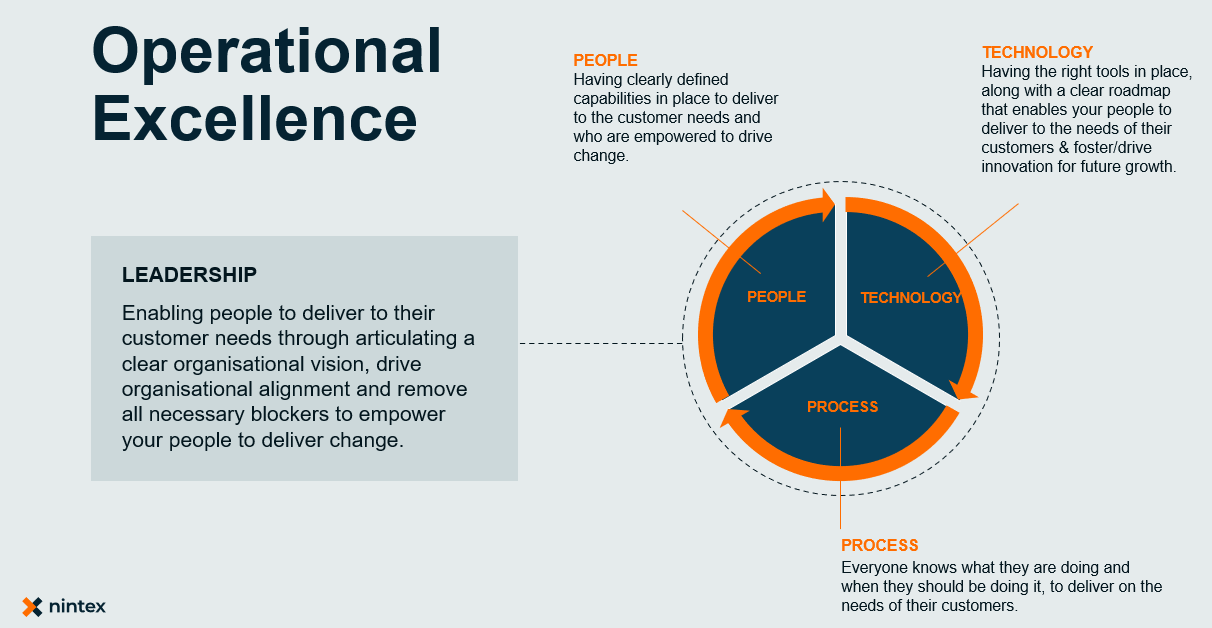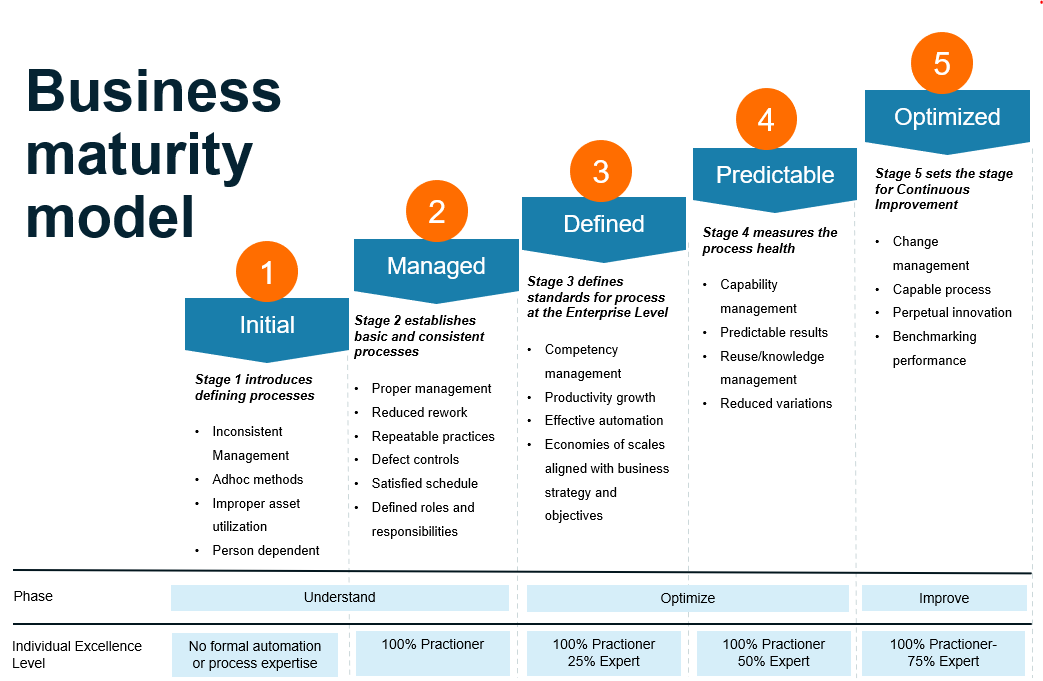
Learn the true definition of process excellence and uncover the power of a center of excellence
What is it?
Process excellence is an orientation and a culture within an organization that aspires to be more effective, efficient and engaged in achieving consistently higher outcomes for everyone involved. That kind of focus needs to be cultivated. It is not the result of a one-off project or a lucky break with a few good hires. It is designed, maintained, and it is driven with those outcomes in mind.
What is involved in Operational Excellence?

It does not just happen by itself!
Growing great processes
Think of your process culture like an award-winning garden. Whether you aspire to carefully manicured lawns, artfully trained roses, or a rambling cottage garden of wildflowers, none of it happens without care, planning and ongoing work. It is a team effort that requires the attention of people who know what they are doing and the cooperation of the people who are there every day.
The center of excellence is your landscaping team, the gardeners that bring your process culture to life.
It is their job to create the framework that tends to your business processes and to ensure the entire company understands how to employ it, and knows why. They are the ones who define what process excellence looks like in your business, and bring processes, people and technology together to achieve that strategic goal.
The contract gardeners
The traditional center of excellence is a centralized business unit that drives the work of continuous improvement across the company. They are the process experts, the ones who know Lean methodology and Kaizen practices. They are the ones people turn to for ideas on automation, for keys on optimization, and they are the ones that lead the process training seminars.
Having dedicated professionals means specialist knowledge that can be brought to bear on process problems. Decisions about strategy and structure can be guided with a company-wide view and in collaboration with senior management. Like a landscape architect surveying a plot, those who are part of the center of excellence can create the big-picture plan for what to do and decide on exactly the right tools and techniques for the unique environment.
A potential problem arises when business needs increase. Just how many gardeners can you afford to maintain your pristine hedges? It is great to have experts on hand to take care of specialist tasks, but the day-to-day maintenance becomes prohibitively expensive if you are putting it into the hands of specialists.
That is where the idea of the center of excellence starts to expand.
The inspired amateurs
No one knows your processes better than the people who use them every day. While a center of excellence suggests a gathering of experts, it does not mean it is the only place the expertise resides. A dispersed or distributed center of excellence focuses on leveraging and celebrating the process knowledge that exists throughout the organization.
Process excellence is everyone’s responsibility. The best people to identify breakdown points are the ones who feel the pain of bottlenecks in their regular work. The best people to suggest improvements are the people who will benefit from smoother processes with less complexity or confusion. Part of the center of excellence’s mandate is to empower these people to take up the challenge, and equip them for the work.
These are the people who water the garden, day to day. They notice the weeds when they start to pop up, long before they choke productivity. They are taught what to look for and how to deal with it and blend the awareness of process excellence into their everyday activities.
That is not to say they can do it all. While business teams may know their processes inside out, they do not have the strategic vantage point of an external observer, or the skill set to establish a new status quo. There is still a place for the expert outsider, the analyst and advisor. What it leaves you with is a process excellence partnership, where expert advice supports day-to-day maintenance and management.
Sowing seeds
A great center of excellence does not have to be ‘central’ to be effective, but it does need to be focused. That is the contribution of the process people in the dedicated roles. By promoting process ownership, they can develop champions across the business, in teams, locations, or production units. As key stakeholders, those individuals can take responsibility for keeping process excellence top-of-mind for their staff, while the process experts supply tools and support to maintain momentum.
It is that balance of focused direction and distributed action that makes a great center of excellence both effective and economically viable. Those that are part of the process team can focus on communication and facilitation, which lets teams on the front lines leverage their expertise in specialist process methodologies, while still contributing valuable process content and perspective.
Watching it grow
When process excellence is valued and resourced, it shows. As the business strives for continuous improvement, process excellence becomes something of a habit, a core facet of the company culture. It is not a goal, or the responsibility of some small specialist team, but an ongoing pursuit that everyone is part of.
That is what a good center of excellence provides. It gives a focal point for the effort and a team of experts to support the initiative, but shares the load across the organization. From broad resourcing and communications, platform maintenance and promotion, to laser-focused advice and specialist solutions, the center of excellence cultivates the heart of a healthy process culture and empowers those who live with it to maintain it.
Establishing a culture of process excellence will not happen overnight, but creating a center of excellence will set you on the right path to see it bloom and grow.



